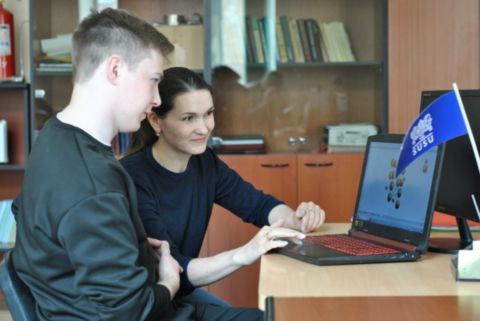A project by a team of scientists at South Ural State University received grant support from the Russian Science Foundation (RSF). The project is focused on obtaining fundamental knowledge on the properties of promising vanadium steels. Although vanadium steels have long been known and widely used, for example in the manufacture of wrenches, their properties have not been studied sufficiently. The results of the research will make it possible to predict the properties of vanadium steels in a more accurate and inexpensive way compared to the experimental method.
The study is part of the New Non-conventional Materials project at SUSU, which was launched under the Priority 2030 program (Science and Universities National Project).
Solving the global problem of reducing carbon emissions is of great scientific importance. One solution is to develop nuclear power using fast-neutron reactors. But materials for such reactors must have increased strength, heat resistance, and resistance to corrosion and damage by neutron radiation. One promising class of applicable materials is vanadium (V-Ti) alloys. SUSU scientists are studying the physical-chemical, thermodynamic, and mechanical properties of these alloys. This research will become a starting point for the creation of new special-purpose materials with a given and controllable set of properties for nuclear power engineering.
"What interests us most is the energy of mixing of the atoms in vanadium steels. We must investigate how vanadium atoms interact with each other and with titanium atoms in different variants of their mutual arrangement. By comparing the energies of various combinations and finding the energy difference (energy of mixing), the characteristics of vanadium steels can be calculated using thermodynamics. Knowing the energy of mixing in different material compositions, we can predict material properties much faster," says Alexander Mirzoev, project manager, Doctor of Sciences (Physics and Mathematics), Professor of the Department of Physics of Nanoscale Systems.
Fe-V solid solutions have been studied for several decades. They play an important role in the design of special steels: stainless, heat-resistant, cold-resistant, etc. However, many thermodynamic characteristics of this system still cannot be considered reliable. SUSU scientists propose a new method of obtaining reliable phase diagrams—thermodynamic modelling (CALPHAD) using first-principle calculations of gamma and alpha phase energy in this system.
"The physical properties of objects are determined by the nature of the interaction between atoms, which determines how often they collide, with what intensity they exchange energy, etc. The first-principles methods for calculating the interaction of molecules are based on the laws of quantum mechanics and are famous for their accuracy. However, calculations by this method take a long time: one calculation takes from 12 hours of supercomputer work," shared Anastasia Verkhovykh, Associate Professor of the Department of Physics of Nanoscale Systems, Candidate of Sciences (Physics and Mathematics).
SUSU scientists will use quantum-mechanical calculations, molecular dynamic modelling, and machine learning tools to study Fe-V and V-Ti systems. The project will make use of the South Ural State University supercomputer centre (SKIF-Tornado parallel computing supercomputer) and WIEN-2K and VASP.
The project is planned to wrap up in two years (2023-2024). The Russian Science Foundation has provided 3 million roubles in funding. The results of the project will be published in leading Russian and foreign journals indexed in Web of Science Core Collection, Scopus, and RSCI ("J. Alloys and Compounds", "Physica Status Solidi (B)").
South Ural State University is a university of transformations, where innovative research is conducted in most of the priority fields of science and technology development. In accordance with the strategy of scientific and technological development of the Russian Federation, the university is focused on the development of big scientific interdisciplinary projects in the field of digital industry, materials science, and ecology. In 2021 SUSU became the winner in the competition under the Priority 2030 program. The university acts as a regional project office of the World-class Ural Interregional Research and Education Centre (UIREC), which is aimed at solving the tasks of the Science and Universities National Project.




